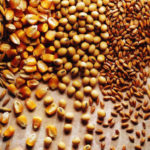 Gold eased further from a 12-week high following a broad-based sell-off in commodity markets after the World Bank cut its global growth forecast. Platinum, palladium and silver fell as well. Copper hit the lowest in more than five years, trailing oils rout.
Gold eased further from a 12-week high following a broad-based sell-off in commodity markets after the World Bank cut its global growth forecast. Platinum, palladium and silver fell as well. Copper hit the lowest in more than five years, trailing oils rout.
Comex gold for delivery in February dropped 0.42% to $1 229.2 per troy ounce by 10:38 GMT, shifting in a daily range of $1 234.8 – $1 224.9. The precious metal edged up 0.13% on Tuesday to $1 234.4, having earlier risen to $1 244.5, the highest since October 23.
Gold slid following a sell-off in commodities after the World Bank cut its global growth estimate this year, citing subpar expansions in Europe and China, which sent oil, base and precious metals tumbling. The global economy is now expected to grow by 3% in 2015, compared to a previous projection for 3.4% made in June. The UN financial institution trimmed its outlook for China, saying it was undergoing a “managed slowdown”, while also cutting forecasts for the euro area and Japan.
The International Monetary Fund is due to update its view on 2015 global growth next week after it cut its previous forecast in October.
Although the precious metal typically attracts demand during times of weaker equities and slower economic growth, gold traders couldnt ignore the massive unwinding of positions in commodities. Premiums in top consumer China fell to about $3 per ounce over the global benchmark from $4-$5 yesterday.
Wallace Ng, a Shanghai-based trader at Gemsha Metals Co., said for Bloomberg: “The big drop in copper triggered some selling in precious metals as well. Sentiment has already been weak because the global economic momentum seems to be slowing, so money has been flowing out of commodities. Gold is holding up quite well because of some haven and seasonal demand.”
Assets in the SPDR Gold Trust, the biggest bullion-backed ETF, did not change on Tuesday and remained at 707.82 tons. Changes in holdings typically move gold prices in the same direction.
Adding to the precious metal’s troubles was a robust dollar, which traded near a nine-year high against the euro amid speculations that the European Central Bank will launch a stimulus program next week at the earliest to fight deflation.
At the same time, gold traders are worried that the Federal Reserve will initiate its first rate hike since 2006 later this year, which will dull demand for the non-interest-bearing metal.
The US dollar index for settlement in March was down 0.06% at 92.450 at 10:38 GMT, holding in a daily range of 92.635-92.150. The US currency gauge gained 0.34% on Tuesday to 92.502. A stronger greenback makes dollar-denominated commodities more expensive for holders of foreign currencies and curbs their appeal as an alternative investment, and vice versa.
Copper
Copper trailed oil lower on Wednesday to hit the weakest level in more than five years, bashed by a firm dollar and an outlook for slower global growth.
Comex copper for delivery in March fell 4.82% to $2.5165 per pound by 10:38 GMT, having earlier plunged to $2.4235, the lowest since July 2009. The industrial metal slid 2.99% on Tuesday to $2.6440.
“People have seen oil prices decline so much and now they’re targeting other commodities,” Ivan Szpakowski, an analyst at Citigroup Inc., said for Bloomberg. “Copper is falling faster than most other commodities because it’s the one that is played by the macro investors and by people who are looking at the broader picture rather than commodity fundamentals.”
West Texas Intermediate and Brent crude were headed for an eight weekly decline as comments by OPEC officials pointed to a persisting oversupply until at least the second half of the year. Kuwait’s Oil Minister Ali Al-Omair said yesterday that the market currently swims in an oversupply of 1.8 million barrels per day and that accelerating global economic growth will be needed to soak the excess production.
Adding to negative sentiment stemming from the World Banks downward revision of its global economic expansion outlook, copper demand growth in China is expected to slow this year to 4% from 5.5% in 2014, according to research company CRU Group. It averaged over 10% between 2002 and 2012.
“Europe has been pretty sluggish, Chinas still got that property overhang, Japans entered recession,” said UBS analyst Daniel Morgan for CNBC. “Youve got the U.S. and UK going fine, so its a patchy global growth picture – but its one that has definitely deteriorated from six months ago.”





